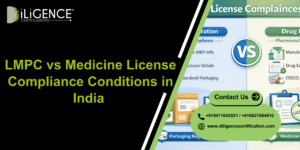



End-to-end certification and regulatory compliance for Indian and global markets.
 BIS Certification
BIS Certification
 CDSCO
CDSCO
 CPCB
CPCB
 LMPC
LMPC
 WPC Approval
WPC Approval
 Global Approvals
Global Approvals
 TEC
TEC
 ARAI
ARAI
 BEE
BEE
 ISO Certification
ISO Certification
 Drone Registration
Drone Registration
 NOC For Steel
NOC For Steel












































Apart from product certification, BIS is responsible for framing Indian Standards, conducting laboratory testing, and ensuring consumer protection.
Some items must be certified before they get released mysteriously made for select goods like cables, switches, cement, gas cylinders, etc.
It ensures electronic products conform to Indian Standards (IS).Covers 70+ products including laptops, phones, adapters, TVs, and batteries.
Hallmarking Certification is mandatory in India for gold and silver jewellery.The BIS 916 Hallmark confirms 22K gold purity.Silver Hallmarking is compulsory for certain grades like BIS 925.
FMCS Mark Certification is a BIS-led approval process that enables foreign manufacturers to sell regulated products in the Indian market.
It helps manufacturers build trust and create a compliance framework. It also markets to eco-conscious consumers.This guide will detail eligibility, provide information on the application procedure, and outline benefits of certification to ISO 14024.
It is governed by NABL under the Quality Council of India (QCI).Accreditation enhances trust among regulators, industries, and global partners.
The World Manufacturer Identity (WMI) is a globally recognized code used to identify vehicle manufacturers. WMI registration ensures traceability, compliance, and global brand recognition for automotive makers.
Stay ahead of regulatory changes with BIS Scheme X Certification. Now extended to September 1, 2026, under the omnibus technical regulation order 2024. Get complete certification support from Diligence Certification.
Get full assistance for CDSCO registration, medical device import licenses, and cosmetic import licenses with Diligence Certifications. Our expert guidance and comprehensive support ensure your compliance, helping you gain a competitive edge in the market. Your satisfaction is our commitment!
Diligence Certifications is a top-tier name in drug licensing and provides topmost service and knowledge support to all sizes of pharmaceutical companies. Our seasoned team understands the global regulations and has seen several success stories.
Having trouble securing Cosmetic License certification in India? Let our ISI certification experts assist you in achieving it and boosting your credibility!
Get expert guidance on Medical Device Registration in India. Learn CDSCO approval process, documents, fees & compliance for manufacturers and importers.
Secure your CPCB Certification with ease and align your business with environmental regulations and sustainable practices. Our expert team streamlines the application process, offering tailored guidance to meet your unique EPR compliance requirements.
Need assistance in Battery Waste Certification? Our experts guide you through every step to ensure smooth and compliant processing.
E-waste has become one of the most serious problems of the modern world, as technology is changing very fast. Discarded electronics items such as smartphones and refrigerators contain very toxic elements hazardous to human health and the environment if not treated properly.
Tyre wastage is an increasing global problem. It threatens to engulf the world in a sea of rubber with disastrous consequences for the environment and human health.
Diligence Certifications help businesses go a long way in environmental compliance matters through their management of plastic waste compliance. It rallies your commitment to reducing environmental impacts, increasing your recycling, driving circular economies and, hence, building credibility with consumers as citizens of a wider world contending against plastic pollution with angels and regulators.
Having trouble in getting EPR registration for your oil products in India? Let the experts do it for you and give credence to your products!
The No-Objection Certificate has special relevance for a business; from needing it while applying for a loan, selling property, or for an application to pursue higher education, there are multiple situations where one has to face the need for an NOC.
Get Full Assistance for Model Approval for Indian W&M Instruments and Importer Registration for Weight and Measurement Instruments with Diligence Certifications. We prioritize your success by providing expert guidance and comprehensive support for all your LMPC Certification needs, helping you gain a competitive edge in the market. Your satisfaction is our commitment, and we work tirelessly to ensure it, now and in the future.
The Diligence Certifications for Packaged Commodities Certification ensures the product conformity with the regulatory requirements. It assesses your product labeling, weight, and quality for compliance with legal requirements and gives transparency and consumer trust. This certification is an instrument of defense against wrong packaging for business and consumers alike and shows your commitment toward fair trading practices and market integrity.
Diligence Certifications offers provision of LMPC Import License Certification under Legal Metrology Packaged Commodities rules with respect to process of importation of goods into India for compliance. Our proficiency ensures that your labeling and packaging for products meet the requirements for easy clearance of goods through customs. It certifies approval from the regulators, having legal backing and gaining confidence of consumers and authorities.
The legal metrology certification is gaining importance in today’s ever-changing context of business with emphasis on fair trade and consumer protection. There is a fresh perspective on maintaining the true measurement and weighing-related activities on account of the fact that with almost every passing day, market growth and transaction complications are assuming greater magnitude.
The company is authorized to undertake the LMPC Manufacturer Registration if it manufactures weights and measures within India. This registration under the Legal Metrology Act guarantees fair and correct transaction laws for business and trade activities through LMPC certificate registration. Let us demystify all the information you would require below.
Get Full Assistance for Non-Network License, Network License, and Equipment Type Approval with Diligence Certifications. We prioritize your success by providing expert guidance and comprehensive support for all your WPC Approval needs, helping you gain a competitive edge in the market. Your satisfaction is our commitment, and we work tirelessly to ensure it, now and in the future.
The Diligence Certifications grant a fast track to the acquisition of WPC Import License, making the imports of communication devices 100% compliant with WPC Certification. Based on our experience and expertise, we ready you for the licensing processes in such a way that your product conforms with all technical standards and is safely usable within India. The certification would guarantee acceptance by regulators, therefore cultivating such trust with the authorities and end users.
Today-connected world, indeed, keeps the promise of wireless devices. Today manufactured devices include laptops, smartphones, portable WiFi hotspots, WiFi extenders, and smart home appliances. However, with this pressing usage, there is a huge demand for safety and performance requirements.
In this hyper-connected age, wireless access points, portable Wi-Fi routers, and other radio frequency (RF) devices are indispensable. When any of these products are manufactured, imported, or sold in India, the knowledge of and acquiring Equipment Type Approval (ETA) becomes imperative; that’s how Diligence Certifications will help you obtain your WPC Certification more conveniently.
In today’s world with increasing environmental consciousness, it is vital to dispose of equipment properly after the intended lifetime. Targeting hazardous e-waste is one of the vital roles played by RoHS; elaborately explaining RoHS certification itself, RoHS objectives, substances involved, certification processes, and applicability in curbing environmental contamination.
Diligence Certifications provides UL (Underwriters Laboratories) Certification services to ensure your products comply with rigorous safety and performance standards. Our skilled team supports you throughout the certification process, ensuring full adherence to UL requirements. Achieving UL certification with us boosts your product’s credibility, fosters consumer confidence, and highlights your dedication to safety and quality in the market.
KC Certification is a major mandatory condition for many products that are developed to reach Korea’s genuine profitable consuming market. KC Certification is otherwise known as KC Registration or simply the Korean Certificate, and denotes compliance with Korean safety standards and regulations.
Struggling with FCC certification in India? Our expert team at Diligence Certifications can help you navigate the process effortlessly, ensuring your electronic devices meet all compliance standards. Boost your credibility and market access with FCC certification today!
Among these is the CE Marking, which is especially pertinent to manufacturers who are considering selling their products in the European Economic Area (EEA).
CB stands for Certification Bodies Scheme.An international system operated by IECEE (IEC System for Conformity Testing and Certification of Electrotechnical Equipment and Components).Facilitates mutual recognition of test results among participating countries.Enables global market access for electrical and electronic products.Reduces the need for multiple testing and certification in different countries.
The SAFTA certificate online enables reduced customs duties under the SAARC trade agreement.Businesses can apply for a SAFTA certificate digitally through authorised agencies in India.This document is vital for proving origin and unlocking tariff benefits.
You can apply online for your MSDS Certificate in India through many trusted compliance and safety services.This documentation allows the company to maintain regulatory safety and hazard management which also protects the world you operate in.
SALEEM / SABER system is the online conformity platform linking exporters, certification bodies, and customs.Two stages: Product CoC (PCoC, valid one year) and Shipment CoC (SCoC, per consignment).
It replaces the CE marking post-Brexit and is mandatory for most regulated products.Indian manufacturers exporting to the UK need UKCA marking to stay compliant.
Get Full Assistance for TEC Type Approval, TEC Interface Approval, TEC Certification Approval and TEC Approval of Technology with Diligence Certifications. We prioritize your success by providing expert guidance and comprehensive support for all your TEC Approval needs, helping you gain a competitive edge in the telecommunications market. Your satisfaction is our commitment, and we are dedicated to ensuring it now and in the future.
Get full assistance for ARAI Vehicle Certification for vehicles, engines, and components with Diligence Certifications. With over 25 years of experience, we prioritize your success in gaining a competitive edge in the automotive market. Trust our expert guidance for all your ARAI certification needs.
Having trouble securing BEE Star Rating Certification in India? Let our ISI certification experts assist you in achieving it and boosting your credibility!
It is critical to understand how to get ISO Certification for audit and compliance purposes.Read on to learn step-by-step how to get ISO certified in India with expert assistance.
It is critical to understand how to get ISO Certification for audit and compliance purposes.Read on to learn step-by-step how to get ISO certified in India with expert assistance.
It is critical to understand how to get ISO Certification for audit and compliance purposes.Read on to learn step-by-step how to get ISO certified in India with expert assistance.
It is critical to understand how to get ISO Certification for audit and compliance purposes.Read on to learn step-by-step how to get ISO certified in India with expert assistance.
It is critical to understand how to get ISO Certification for audit and compliance purposes.Read on to learn step-by-step how to get ISO certified in India with expert assistance.
It is critical to understand how to get ISO Certification for audit and compliance purposes.Read on to learn step-by-step how to get ISO certified in India with expert assistance.
It is critical to understand how to get ISO Certification for audit and compliance purposes.Read on to learn step-by-step how to get ISO certified in India with expert assistance.
Drones above nano size must be registered on Digital Sky and obtain a UIN, Type Certificate, remote-pilot certificate (for commercial use), and insurance—while adhering to airspace rules and NPNT protocol.
Importing steel into India? Get your No Objection Certificate (NOC) under the Steel Quality Control Order (QCO) without delays or compliance risks. Diligence Certifications offers complete support for steel importers—ensuring your products meet Ministry of Steel and BIS regulations, and helping you avoid customs issues, rejections, or penalties. Stay legally compliant, save time, and streamline your steel import process with our expert certification services.
End-to-end certification and regulatory compliance for Indian and global markets.
 Business Registration
Business Registration


















In addition, you will be briefed on how Limited Liability Incorporation protects you and how Diligence Certifications may assist one in navigating the certification process.
Diligence Certifications streamlines the One-Person Company (OPC Registration in India) registration process, ensuring compliance with all.
Starting a Limited Liability Partnership (LLP) can be a strategic move for entrepreneurs looking to combine the benefits of a partnership with the advantages of limited liability partnership.
Starting a business is an exciting venture, and choosing the right legal structure is a crucial first step. For many entrepreneurs, a partnership firm offers a flexible and collaborative way to operate.
Unlock the exclusive benefits and enhance the startup with Startup India Registration – along with that Diligence Certifications can help you with the whole process and ensure that every requirement is fulfilled for a successful Startup India Registration in India.
Are you really into making a difference or starting your own Non-Governmental Organization (NGO Registration) in India? We will also mention how Diligence Certifications can assist you in such cases.
The PESO License framework establishes mandatory approval processes for products relevant to the oil and gas sector, particularly those involved in gas handling or intended for use in corrosive environments prevalent in the industry.
The registration process begins with gathering mandatory documents such as PAN, GST, bank details, and Aadhaar/DSC.
Well, at this point, are you really ready to take it to the next level? The formation of Private Limited Company Registration in India is often considered to be a strategic alternative by most entrepreneurs since it provides credibility combined with a limited liability and a scope for future investments:
Our expert team provides comprehensive guidance through each step, from documentation to application submission. With our assistance, you can establish your subsidiary efficiently, gain legal recognition, and leverage opportunities for growth in the Indian market.
The Producer Company Registration offers this sort of power to farmers to organize and run businesses for their mutual benefit collectively.How Diligence Certifications can facilitate the process with credibility for a Farmer Producer Company (FPC).
It offers a straightforward setup and direct control, making it the most popular and straightforward business structure in India.
With our assistance, you can establish your partnership with confidence, define roles and responsibilities, and set the foundation for successful collaboration.
Setting up a new enterprise should be exciting, even though there are deterrents in legal implications. That is a journey almost every business-making entity undertakes, from the littlest to the largest-the Shop and Establishment Registration.
Our expert team provides comprehensive support throughout the registration process, from documentation to application submission. With our assistance, you can access government benefits, secure funding opportunities, and enhance your business credibility in the competitive market.
FSSAI mark certification is an important regulatory mechanism that guarantees strict adherence to food safety and quality standards by all food products manufactured, imported, and sold in India.
No longer complicated definitions for you; just straight, simple, useful information that will get your business going.
End-to-end certification and regulatory compliance for Indian and global markets.
 Legal Services
Legal Services
 Trademark Registration
Trademark Registration
 Copyright Registration
Copyright Registration
 Patent Registration
Patent Registration






















































Building a strong brand is very important for succeeding in today’s competitive marketplace. A clearly defined brand helps you stand apart from the competition, gain customer loyalty, and earn a name in market value. But what happens when someone else decides to copy or misuse your brand? This is where Trademark Registration comes into play.
Trademark objection? Get a professional, accurate reply with fast support and proper documentation to avoid rejection.
A Trademark Assignment legally transfers trademark rights to a new owner, protecting business interests and securing brand ownership.
Facing trademark record issues? File a Trademark Rectification to fix errors, remove wrongful entries, and protect your brand.
Renew your trademark on time to protect your brand rights, avoid cancellation, and keep it active effortlessly.
Trademark Licensing lets others use your brand while you retain ownership, helping you expand reach, earn royalties, and protect your rights.
Trademark Opposition helps stop conflicting trademark registrations and protects your brand rights.
Register your copyright to legally protect creative work like music, writing, software, and designs. Secure exclusive rights and safeguard your IP.
Need a Copyright Disclaimer? Learn its importance and get guidance to protect your content from misuse—ideal for creators, websites, and businesses.
Protect your creative work and earn with Copyright Licensing. Grant legal usage rights, keep ownership, and prevent copyright violations.
Handle Copyright Objections with expert support. Submit proof, clarify details, and protect your creative ownership from rejection.
Copyright Assignment legally transfers creative ownership. Ensure a safe, dispute-free transfer with proper documentation and expert support.
Register your patent to legally protect your invention, prevent unauthorized use, and secure commercial rights.
Indian Patent Search checks if your invention is unique, helping avoid legal issues and improve approval chances.
Patent Opposition lets you challenge duplicate or false patent claims. File with proper proof to protect your innovation rights.
Patent Revocation removes wrongly granted patents, protecting your business by cancelling invalid claims through legal action.
Rajesh, a software engineer from Pune, spent half a year devising an innovative educational program. With the completion of the program, he decided to seek out a copyright registration for protection of his source code and interface layout. Three weeks after filing, he received an official letter from the Copyright Office, informing him that his application had been marked for objection. The Registrar had reviewed the software and identified similarities with existing educational programs. He requested Rajesh clarify those similarities within 30 days.
Rajesh panicked. Not only was he certain that he hadn’t copied anyone’s work, he also knew that he had been original with his code, which he had developed line by line. But how was he going to prove it? What documentation would the Registrar be satisfied with? As the deadline approached Rajesh realized that this was not merely a prompt to be aware of how to respond to a copyright objection but an important undertaking for the protection of his intellectual property.
Copyright objections are more common than creators expect. The Registrar’s job is to look through an application to ensure that it meets the legal criteria, as well as, does not interfere with existing rights. When the application is in question, the duty of the copyright examiner is to formally object. Knowing how to respond with an effective response can mean the difference in having copyright registered or rejected.
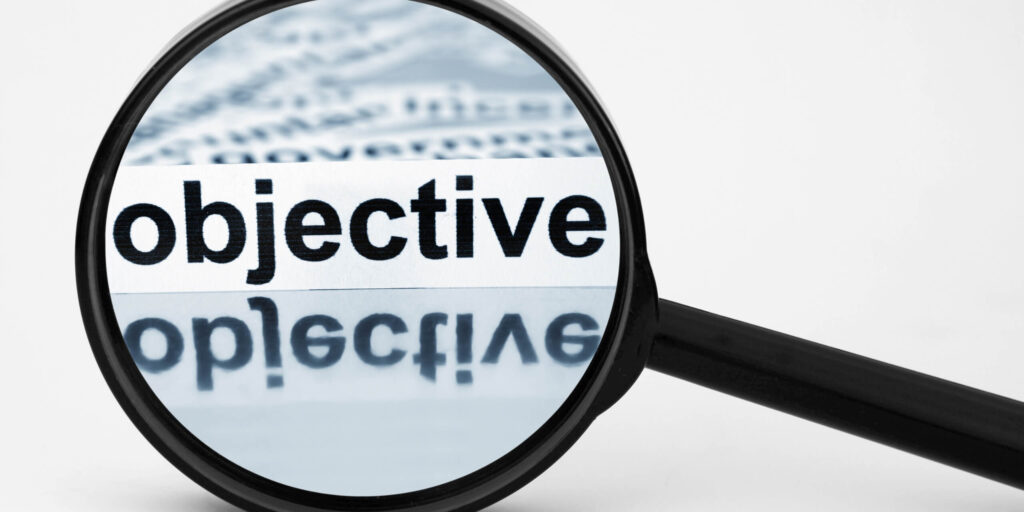
Copyright objection is when the Registrar of Copyright identifies an issue with your copyright application during examination, usually because they see a potential problem with similarity to or duplication of someone else’s work. An objection in this context is not a suggestion that there is wrong doing – it is simply a formal inquiry for every application dealing with aspects of the application that the registrar thinks may need further explanation, support or documentation.
During examination, the Copyright Office may discover errors or discrepancies in copyright applications that a registrar may raise as an objection, formally in writing, explaining the basis for the objection and allowing an opportunity for the applicant to respond. These objections also serve a quality control function in an effort to ensure that the copyright register is reliable and provides protection for legitimate creators.
Copyright objections will likely be made by the registrar within 30 days from the date the application was filed, by way of a letter of discrepancy directed to the applicant. The letter will usually set out the specific issues and seek supporting documentation or clarification regarding the particular issue. The objection does not mean that the copyright application will fail or be rejected, it simply serves as a procedural checkpoint that can be resolved by most applicants providing further documentation.
Similarity to Pre-existing Works
The predominant reason relates to similarity with existing works on the copyright register. The Registrar may observe similar titles, comparable creative components, or overlapping subject matter. This necessitates an explanation concerning how your work differs from that which is already registered.
Lack of Originality
Copyright protects original expression—ideas are not protected. If it is not evident from your application that originality has been demonstrated sufficiently, objections will be made. The Registrar needs to be able to determine that your choices, arrangements, or expression are creative and original intellectual labour.
Incomplete or Missing Details
Missing details will trigger procedural objections. This occurs when a creator or author (or proposed author) is missing, an unclear work description, missing dates, or categorization is inadequate. Procedural objections because of missing details are normally the fastest and easiest objections to resolve.
Insufficient Documentation
Applications need written accompanying documents that the law requires to support the ownership claim, such as proof of authorship, publication information or a power of attorney. Objections will be made to applications that are missing documents or documentation that is illegible or improperly formatted.
Conflict of Ownership Claims
Objections arise where two or more parties claim authorship, or where the application contradicts information known publicly about the authorship of the work. Generally, objections occur relating to works created in the course of employment or works produced collaboratively.
Third-Party Objections
A copyright objection will arise when a third party files an application for a work, claiming that the copyright is for a prior pre-existing expression of an idea that is their idea.
You must include the discrepancy letter that the registrar issued, as well as supporting documentation of your reply. A full response should also have some of the documentation detail:
Necessary Documentation:
Organise evidence chronologically and guarantee all documentation is legible, organised, labelled accordingly, and relevant to the specific details of each objection raised. Quality of documents is important, as is the quantity of documents as evinced by evidence.
Step 1: Analyse the Objection Carefully
The very first step to reply is to analyze copyright objections carefully. Read the discrepancy letter multiple times. Identify each specific ground of objection. Distinguish between substantive objections (questioning originality or ownership) and procedural ones (missing forms or signatures).
Step 2: Gather Comprehensive Evidence
Collect all documents supporting your claim. Think strategically about what would convince the Registrar. If original documents are in languages other than English or Hindi, get certified translations.
Step 3: Draft a Detailed Reply
Reply should be drafted very carefully; it should include relevant rule of law and judgment supporting the case, reasons why it gets copyrighted along with necessary documentation. Structure your response professionally with point-by-point addressing of each objection, supporting legal citations, and clear explanations.
Reference specific sections of the Copyright Act, 1957 that support your position. Use simple, clear language rather than overly technical jargon. Avoid defensive language—focus on providing information that addresses concerns.
Step 4: Address Each Objection Specifically
Don’t provide generic responses. Take each objection individually and respond directly. For objections about similarity, explain how your work differs creatively and structurally. For procedural objections, provide missing information or corrected documents.
Step 5: File Within the 30-Day Deadline
Filing of Reply should be done within 30 days of issue of discrepancy letter along with all necessary documents with the registrar. Don’t wait until the last day. File through the official Copyright Office portal or by registered post.
Step 6: Follow Up Proactively
After filing the reply, the creator must follow up with the relevant registrar’s office to ensure that the process is completed as quickly as possible. Check your application status periodically and respond promptly if additional information is requested.
Step 7: Prepare for Potential Hearing
Based on whether or not the registrar is satisfied with the contents of the response letter, a hearing might be arranged, which naturally calls for utmost professionalism to ensure a good outcome.
It is important to reply to copyright objections quickly so as to gain and retain the legal rights of the work. Responding effectively offers multiple advantages:
Filing a reply preserves legal rights, avoids application cancellation, meets legal document requirements, offers drafting flexibility, and provides strong argumentation. Rejection means starting from scratch, wasting filing fees and leaving your work unregistered.
Successfully overcoming objections results in registration with full documentation on file, creating a public record that serves as prima facie evidence in future disputes. Registration enables statutory remedies, commercial licensing opportunities, and protection from infringement.
After filing the reply, if an objection is filed, it takes an additional month to determine whether the copyright can be registered or not. Three main outcomes exist: objections fully satisfied resulting in registration, partial satisfaction requiring additional clarification, or rejection with appeal rights.
Copyright registration takes nearly 4-8 months to complete if there is no objection in application filed, otherwise it takes nearly 1-2 years depending on the application type.
In case the Registrar of copyright after checking the reply finds the answers to copyright objection valid, he shall set aside the objections and shall further continue with the process of registration by issuing a Certificate of Copyright Registration.
Consider Diligence Certification when objections involve complex legal issues, similarity with multiple existing works, disputed ownership, technical works requiring expert explanation, or substantial commercial value. Copyright attorneys offer legal analysis, strategic response planning, professionally drafted replies with proper legal citations, and representation at hearings.
Responding to a copyright objection is merely a procedure that does not ensure the registration of one’s copyright. However, expert guidance significantly improves success rates for complex objections.
The process involves analyzing the objection, drafting a well-founded response, filing the reply with necessary documents within 30 days, and proceeding to copyright registration if accepted. Copyright objections represent procedural hurdles, not permanent barriers.
Approaching objections strategically—with comprehensive documentation, clear legal reasoning, and professional presentation—transforms challenges into successful registrations. Don’t let objections intimidate you. Address them promptly, respond thoroughly, and secure the legal protection your creative work deserves.
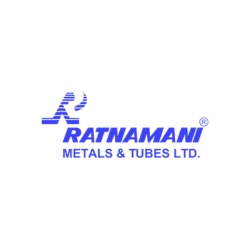
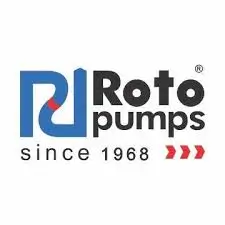
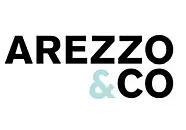
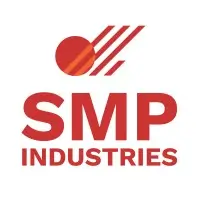
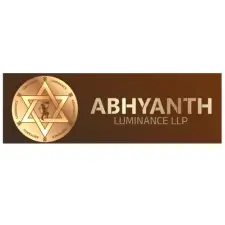
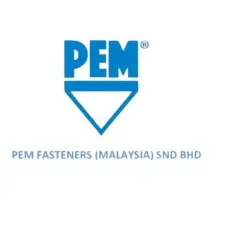
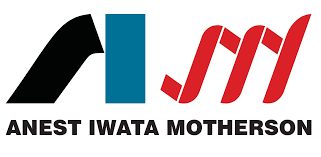
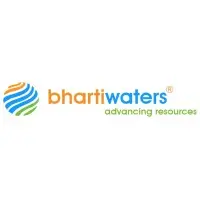






















This is a formal letter from the Registrar notifying you of a discrepancy in clarifying, documenting, or providing explanation about your application for copyright.
30 days from receiving the discrepancy / objection letter.
Your application is considered rejected, and you must refile (with fee and wait).
Online via the Copyright Office e-filing portal or by registered post to the Registrar referenced in the letter.
A copy of the discrepancy letter; a copy of your original application; proof of identity; if applicable, proof of originality- drafts, timestamps, logs; proof of publication; assignment / licence deeds; any technical documents (if there are any); comparison charts; and affidavits (if needed).
Point by point: quote each objection then respond directly with facts and evidence; attach properly labelled exhibits; cite law if you think is relevant.
Yes. However, for complex objections (claim of similarities; ownership claim; and claims involving technical works) getting professional assistance to prepare the response would significantly improve the likelihood of a successful outcome.
Yes, depending on all written evidence submitted by the applicant, a hearing may be called by the Registrar if they are not satisfied with the written response.

